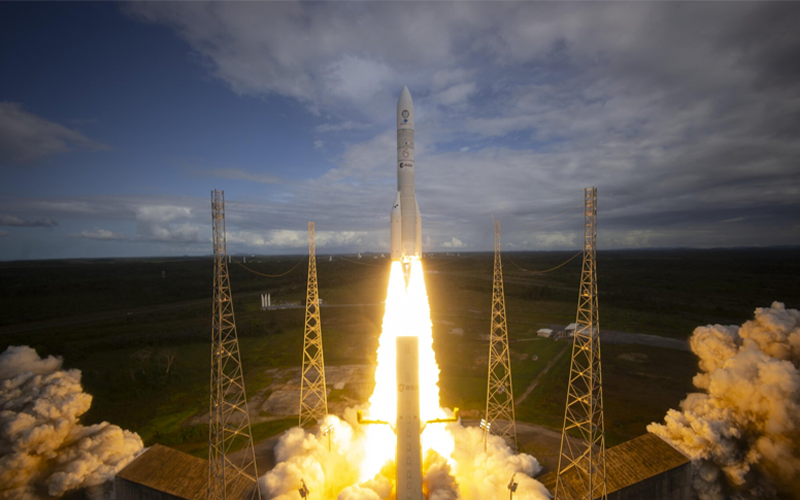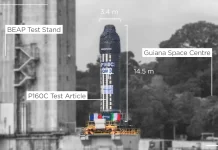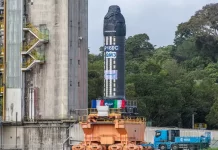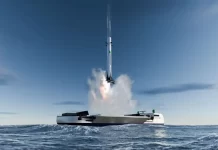
ArianeGroup CEO Martin Sion said on French public radio that unlike SpaceX with its Falcon 9 rocket, a reusable Ariane 6 was “not economically interesting” for Europe when the programme was created.
The ArianeGroup chief made the comments during an interview with France Inter on 12 July, just days after the mostly successful inaugural Ariane 6 rocket launch. The flight was cut short halfway through the planned four-hour mission after an anomaly with the rocket’s APU precluded the possibility of completing the final Vinci burn to deorbit the rocket’s upper stage. The stage’s passivation was triggered successfully, and it remains in orbit at an altitude of around 580 kilometres.
When asked about whether or not the launch of Ariane 6 would put Europe back on par with the United States and SpaceX, Sion explained the core difference between the approaches of the two companies. The following extracts have been translated from French.
“We’re not quite playing in the same league [as SpaceX],” Sion said. “Given the number of launches that SpaceX does, there was an economic equation which made reuse extremely favourable. Whereas when the Ariane 6 program was launched with an objective of four institutional launches and five commercial launches, reuse was not economically interesting.”
Sion did, however, highlight the company’s reusability efforts being conducted through its subsidiary, MaiaSpace. The company is developing a small, partially reusable two-stage rocket called Maia. When launched in a reusable configuration, the rocket is designed to be capable of delivering around 500 kilograms to low Earth orbit.
The ArianeGroup CEO explained that MaiaSpace would utilize a fundamentally different approach to developing its rocket.
“[ArianeGroup] do as much testing as possible and calculating as much as possible before flying. That’s why there was so much pressure on our shoulders to make it successful.” “[With MaiaSpace], it’s about trying to fly as quickly as possible to detect problems and correct them one after the other.”
Maia’s inaugural flight is expected to take place from the Guiana Space Centre in 2025, with the first commercial flight following in 2026.




